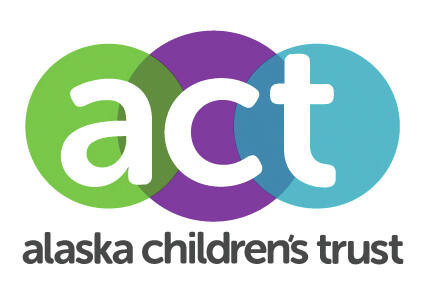Laurie Mead, the owner of Kyrie N’ Friends, a licensed child care facility in Soldotna, serves a hot meal for lunch every day. For some kids, she knows that this homemade entree may be the only hot meal they eat all day. When Mead learns that families in her program are struggling, she sets aside the leftovers for them to take home.
Quality, affordable child care makes society function; parents rely on child care to pursue work and support their families, and businesses rely on the child care sector to ensure a stable workforce. But for Child Abuse Prevention Month this April, we want to highlight a crucial yet often overlooked benefit of child care: it prevents child abuse and neglect.
Access to child care eases family stress, giving parents a much-needed break and enabling them to pursue work or schooling to better their families’ lives. Alleviating a key parental stressor — finding affordable care for their kids — enables parents to be the best caregivers they can possibly be. Access to quality child care also reduces the likelihood of neglect, as parents are less likely to leave their children unattended or rely on unsafe caregivers, who may perpetrate physical or sexual abuse.
Research backs up these claims. Not having emergency child care is associated with an increased risk for self-reported neglectful behavior, especially for single mothers. On the other hand, receiving child care subsidies is associated with a substantial decrease in the odds that low-income mothers will be reported for both neglect and physical abuse.
While this research is important, the stories of real child care providers, like Mead, provide the best insight into child care’s power to prevent maltreatment. Mead’s day care is an establishment in Soldotna; she’s been providing child care for long enough that children who attended her program now bring their own children to Kyrie N’ Friends. Mead knows both the families she serves and her community well, and she puts those connections to work improving the lives of struggling clients. Sometimes, that looks like giving out leftovers. Other times, it’s handing out resources on the Supplemental Nutrition Assistance Program (SNAP). Support and connections like these make all the difference to families in crisis and are key to preventing abuse and neglect.
The trust and bond Mead has with her clients is the result of years of dedication and community service. But providers in Alaska are struggling. Child care is an emotional, stressful job, and it’s often low-paying and without benefits. Without a stable workforce, providing enough quality, affordable child care spots to meet the demands of Alaska’s families is nearly impossible. When child care facilities close or can’t hire enough staff to meet demand, our communities lose a crucial support. This April, let’s recognize that child care prevents child abuse and neglect and work to support the providers who help Alaska’s families thrive. If your family as a story that illustrates the importance of child care in Alaska, share it today at alaskachildrenstrust.org/share-your-story.
Laurie Mead, owner of Kyrie ‘N Friends child care, has been in the field of early childcare education for 40-plus years, bringing up six children with her husband in the central peninsula. She is close to finishing her BA in Early Childhood Education and Family Studies. Laurie blends family and work; she hosts a monthly night out for parents to support families and works with several organizations to advocate for families in Alaska.
Eliza Posner is the director of strategy at Alaska Children’s Trust, where she focuses on primary prevention initiatives to stop child abuse and neglect before it occurs. She is committed to amplifying the voices of those with lived experience and driving meaningful change through collaboration in her work. Eliza loves partnering with groups across Alaska to advance culturally relevant initiatives that help children, youth and families thrive.
This op-ed was submitted by Alaska Children’s Trust on behalf of Mead and Posner.


